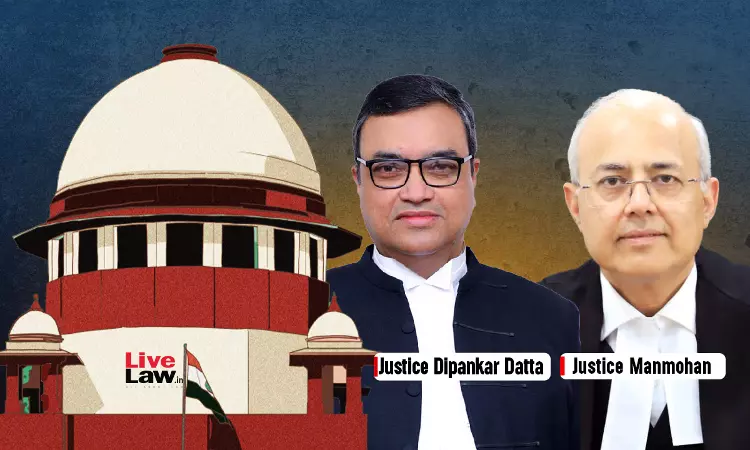- Home
- /
- Supreme court
- /
- Section 10 Transfer Of Property Act...
Section 10 Transfer Of Property Act Doesn't Hit Restrictive Conditions In Government Land Allotments : Supreme Court
Yash Mittal
14 May 2025 8:11 PM IST
The Supreme Court today (May 14) clarified that Section 10 of the Transfer of Property Act, 1882 (“TPA”), which invalidates absolute restraints on alienation, does not apply to government allotments, as such transactions are neither inter vivos nor commercial in nature but are in the public interest. Holding thus, the Court justified the Telangana government's right to impose conditions...
The Supreme Court today (May 14) clarified that Section 10 of the Transfer of Property Act, 1882 (“TPA”), which invalidates absolute restraints on alienation, does not apply to government allotments, as such transactions are neither inter vivos nor commercial in nature but are in the public interest.
Holding thus, the Court justified the Telangana government's right to impose conditions on land use and to seek resumption of the land in cases of misuse, while setting aside the High Court's decision which considered the allotment of land to the Respondent as a sale made under TPA.
In essence, the Court stated that Section 10 of the Transfer of Property Act applies to inter vivos transfers, but not to conditional transfers made through government allotments.
The bench comprising Justice Dipankar Datta and Justice Manmohan heard a case involving the allotment of 3.01 acres of land in Medak district to a trust by the state government in 2001, under a government order for charitable purposes. The allotment was subject to conditions, i.e., the land was to be used exclusively for charitable activities, and construction was to be completed within two years.
However, instead of complying, the trust subdivided the land into plots, sold them to private individuals, and concealed the original terms of allotment through a fraudulent General Power of Attorney (GPA) in 2011.
In response, the Telangana government issued a resumption order in 2012, which was later struck down by the High Court in 2022 on the ground that it violated Section 10 of the Transfer of Property Act, which voids absolute restraints on the transfer of property.
Aggrieved by the High Court's findings, the State appealed to the Supreme Court.
Setting aside the High Court's decision, the judgment authored by Justice Manmohan emphasized that government allotments are not private sales but are intended to serve broader public welfare. Therefore, the Respondent-Trust's breach of the allotment conditions entitled the State to resume the land, as permitted under the applicable statutory land rules, which operate independently of the Transfer of Property Act and empower the State to impose and enforce such conditions.
“This Court is of the view that the Appellant-State had allotted land to public trust for public purpose. In such a situation, the State cannot be put in the normal classical inter vivos party's position as public interest is supreme and must prevail. This Court is also of the opinion that Rules 1975 and the Board of Revenue Standing Orders operate in a completely distinct space and are not eclipsed by Section 10 of the TPA.”, the court observed.
Thus, the Court allowed the appeal, emphasizing that the state government allotting land in public interest would have a right to seek resumption of land, as such allotment cannot be categorized as a sale, upon breach of the conditions of allotment.
Case Title: THE STATE OF TELANGANA & ORS. VERSUS DR. PASUPULETI NIRMALA HANUMANTHA RAO CHARITABLE TRUST
Citation : 2025 LiveLaw (SC) 564
Click here to read/download the judgment
Appearances:
For Petitioner(s) :Mr. S. Niranjan Reddy, Sr. Adv. Ms. Devina Sehgal, AOR Ms. Palak Arora, Adv. Mr. S.day Bhanu, Adv.
For Respondent(s) :Mr. Gaurav Agrawal, Sr. Adv. Mr. D. Abhinav Rao, AOR Mr. Abhisek Das, Adv. Ms. Megha Shaw, Adv. Mr. Raghav Bherwani, Adv.



